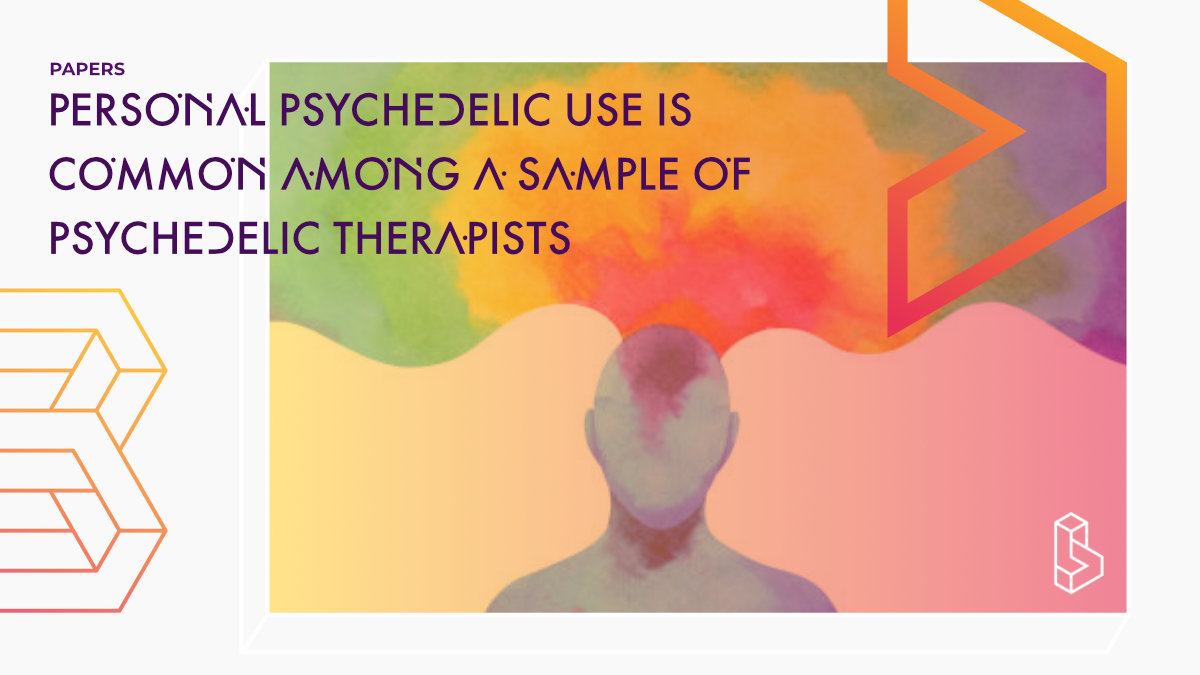This survey (n=32, of 145 sent out) of Usona Phase II trial therapists finds that most (88%) had personal experience with psychedelics (e.g. psilocybin). The reasons for use were diverse, ranging from personal development to fun.
Abstract
“Background: An emerging controversy in psychedelic therapy regards the appropriateness or necessity of psychedelic therapists having personal experience using psychedelics themselves. Although there are a number of potential advantages and disadvantages to personal use among psychedelic therapists, no studies to date have measured their use or other aspects of their training.
Materials and Methods: First, we broadly review the literature on experiential learning in psychotherapy and psychiatry as well as the history of personal use of psychedelics by professionals. We then report on the results of a survey that was sent to all 145 therapists associated with Usona Institute’s Phase II clinical trial of psilocybin for major depressive disorder. Thirty-two of these individuals (22% response rate) participated in the survey.
Results: We found that experiential learning is common in psychotherapy but not in psychiatry, meaning psychedelic therapy straddles two different traditions. In our survey, the majority of psychedelic therapists identified as white, female, and having doctoral degrees. Most of the sample had personal experience with at least one serotonergic psychedelic (28/32; 88%), with psilocybin being most common (26/32; 81%; median number of uses = 2–10; median last use 6–12 months before survey). Participants had myriad intentions for using psychedelics (e.g., personal development, spiritual growth, fun, curiosity). All respondents endorsed favorable views regarding the efficacy of psilocybin therapy.
Conclusion: Personal experience with psychedelics was notably common in this sample of psychedelic therapists, but the study was limited by a low response rate and a lack of diversity among participants. Future research is needed to address these limitations as well as to identify whether personal experience with psychedelics contributes to therapists’ competency or introduces bias to the field. Nonetheless, these findings are the first to delineate the personal use of psychedelics among professionals and can inform a pressing debate for the field.”
Authors: Jacob S. Aday, Zachary Skiles, Noa Eaton, Lisa Fredenburg, Mollie Pleet, Jessica Mantia, Ellen R. Bradley, Gisele Fernandes-Osterhold & Joshua D. Woolley
Summary of Personal Psychedelic Use Is Common Among a Sample of Psychedelic Therapist
Personal experience and reflection are common to many professional disciplines, and psychedelic therapy is no exception. This article reviews the literature on experiential learning in psychotherapy and psychiatry, and presents findings on the characteristics of a sample of psychedelic therapists.
Psychoanalysis/psychodynamic, cognitive-behavioural, humanistic/experiential, and systemic/family therapies all promote the importance of supervised training and personal therapy as important experiential learning experiences that can enhance distress tolerance, awareness of the personal impact, empathy for clients, personal mindfulness skills, emotional intelligence, self-regulation, and sense of mastery.
Physician training has rarely included a pharmacological experiential component. This practice has been considered outlandish for at least the last 60 years.

